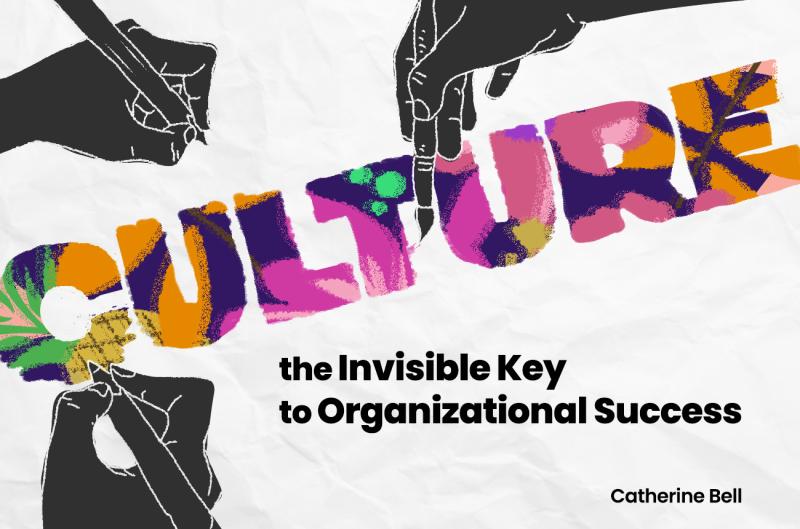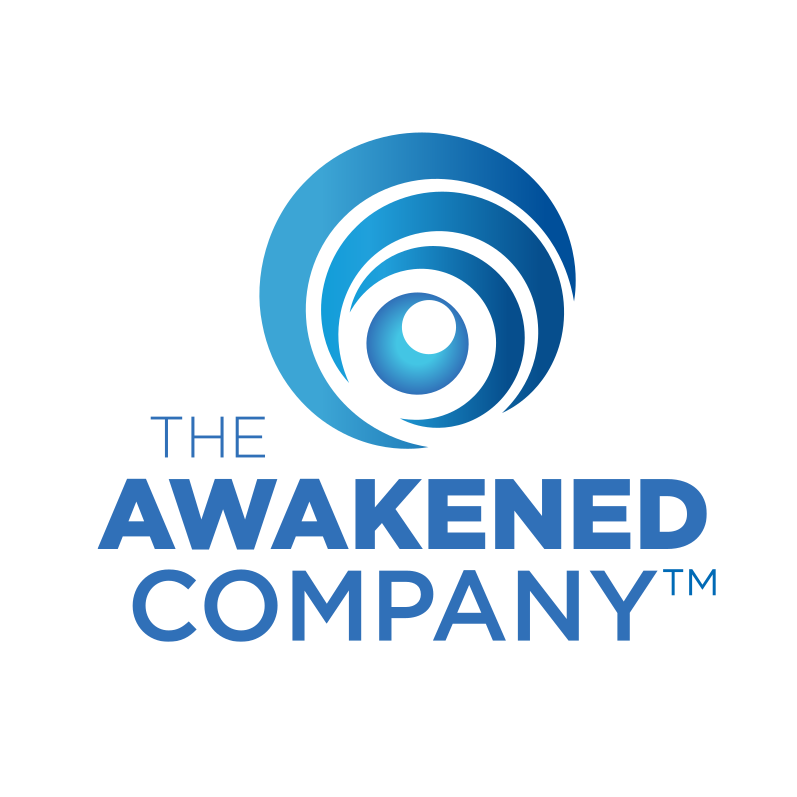
Originally written by Catherine R. Bell in May 2023 for Educate and Explore powered by Olympia Trust Company.
I recently met with an incredible leader in a sweet local coffee shop. Wow, she was doing incredible things. Her organization is growing 50% year over year, she is fulfilled, her operating plans exceptional, her team strong, and yet – something was missing. The team has a powerfully clear vision, missions, and values (things that, surprisingly, most organizations do not have) which were being embodied. Operationally, the company is exquisite.
Questions:
What do you think is missing from the organization described above?
Is your organization’s vision, values, and mission clear?
The company has no line of sight on their corporate culture. What we know from business research is that organizations that focus two thirds on corporate culture and one third on financial performance are higher performing than those who focus on finances alone [footnote 1]. To this day when I meet with CEOs, their focus tends to be on hitting their financial metrics. What every leader must know is that leaders that focus only on financial returns are the lowest performing organizations.
Here is a general cultural survey that you can take to help you check in on your corporate culture.
From our work with hundreds of organizations and thousands of leaders, we believe corporate culture isn’t something that should be cookie cutter. Every organization can create cultural metrics that keep their focus on bringing humanity, belonging, and meaning into their organizations. Culture is more mercurial than finances – cash flow – is pretty linear. Deciding on what your corporate culture is or isn’t, is more rainbow flavored. For example, how do you measure how your values are lived? How important is employee retention? How do people on the team find autonomy, meaning, and belonging? How does your culture measure living your vision and values?
In the Awakened Company book, I speak of organizations energizing, sustaining, and regenerating collectively:
Energizing is getting clear on your vision, goals, and celebrations.
Sustaining is getting your values, connectivity, and structures locked down.
Regenerating is allowing for individual consideration, creativity, and space to make great decisions.
Before we think of cultivating a collective strategy with soul on a group level, we must consider two other levels: self and relationships in our organizations. The highest performing leaders are those that are self-aware. So, how do we cultivate self-awareness? Here are some tips:
- Use a presence leadership map like the Enneagram. Understand what your gifts and blind spots are.
- Cultivate a personal aim – what is your specific unique ability and does everyone in the organization have a personal aim? Recite your aim every time you enter a new place to remind yourself of your intention.
- Develop a centring practice to give space in your day so you can be more present when faced with challenges. Centring has been shown to reduce stress, reduce reactivity, and improve creativity. One simple practice is to take a conscious breath or do a quick body scan.
Next is our relationships. Healthy relationships are the key to reduced turnover and engagement. To build wonderful relationships in our organizations:
- Positively notice your team members, catch them in the act of doing things right and tell them. The most engaged team members are those who are positively noticed.
- Book one on one time with people. Often, we work alone or are in a team. To build healthy relationships, book regular coffee or tea or walk meetings and really connect with the other person.
- Consider whether you are heartfully, mindfully, and spaciously relating to others. Check in with your heart on whether you are being empathetic or compassionate with the other. Also check in with your head in relating to others – have you considered all the possible alternatives and are you giving space to the relationship and giving people autonomy?
Next, we can consider our entire organization. It is similar to building with Lego – we build our self-awareness and leadership capacity, our relationships, and then through that, we build our teams.
Considering these aspects of Awakening Organizations (energizing, sustaining, and regeneration) – how do you measure culture around these attributes? Some examples of measurements we have helped clients with include: employee turnover (wanted and unwanted), having performance evaluations based on living the company’s values and vision, and engagement statistics. You can improve your office culture by taking a deliberate compassionate approach around self-development, relationship development, and then setting deliberate metrics around corporate culture. One big key is to have a clear vision and values and then operational plans in support of those. Vision and values should drive everything. If we don’t know where we are heading, we are lost. Write a one-page strategy with soul using this form:
The invisible key for many organizations is unlocking how people work together better, and that is through your culture. By doing these things, you will be bringing more humanity into your organization and, as a result, more powerful results. More importantly, creating meaningful moments for people.
As one of the top researchers in the world on leadership, Dr. Julian Barling says “What is the smallest thing you can do?”.

The Awakened Company is the “why” we need to focus on creating healthy cultures in our organizations. The focus of the book is on bringing humanity back into the workplace. Awakened Company provides hope and guidance for how we can overcome habitual, unhealthy behaviors at work and wake up to a new way of working that enables us and our organizations to realize more of our potential. By organizing differently we can bring fresh perspectives to solving the challenges we face.
Footnotes
[1] Keller and Price, Beyond Performance, 2011, 6.
Disclaimer
The views and opinions expressed in this article are those of the author and do not necessarily reflect the views or opinions of Olympia Trust Company, Olympia Financial Group Inc., or any of its affiliates. The author’s views and opinions are based upon information they consider reliable, but neither Olympia Trust Company, Olympia Financial Group Inc. nor any of its affiliates, warrant its completeness or accuracy, and it should not be relied upon as such.
Sign up to our newsletter for free insights into building an Awakened Company.
